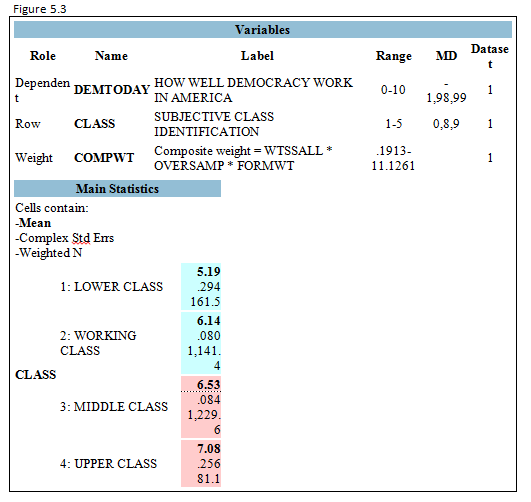Compare role distancing and role exit as components of social structure
What will be an ideal response?
The following are suggested areas for students to address in the essay: Define "role distancing" and provide an example
Define "role exit" and provide an example
Discuss the four stages of role exit according to sociologist Helen Ebaugh Encourage students to include any personal experiences in relation to role distancing and role exit in their responses
You might also like to view...
An increased demand for __________ is one unintended consequence of widespread high-stakes testing in public schools.
A) charter schools B) concerted cultivation C) desegregated schools D) special education
_____ often involves acts of omission (where parents or caregivers fail to provide adequate physical or emotional care for children) rather than acts of commission (such as physical or sexual abuse)
a. Maltreatmentb. Emotional abuse c. Neglect d. Maladaptive behavior
What is the best interpretation of the top number in the resulting table of “Main Statistics” (5.19)?

Figure 5.3 shows a comparison of means. CLASS is a variable that indicates respondents’ sense of themselves as lower-class, working-class, middle-class, or upper-class. DEMTODAY is a variable corresponding to the question “On the whole, on a scale of 0 to 10 where 0 is very poorly and 10 is very well. How well does democracy work in America today?”
a. 5.19% of respondents identified as lower class.
b. Among respondents who identified as lower class, 5.19% believed that democracy is not working well in American today.
c. Among respondents who identified as lower class, the mean score on the variable DEMTODAY was 5.19
d. The likelihood of believing that democracy is not working well in American today is 5.19 times higher lower-class respondents, compared to upper-class respondents.
______ is generally regarded as the most influential contemporary advocate of the functionalist perspective. He stressed that all societies must provide for meeting social needs in order to survive
A. Talcott Parsons B. Emile Durkheim C. Robert Merton D. Auguste Comte